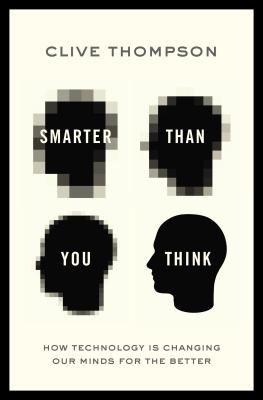In this searing and surprising memoir,
Samantha Geimer, "the girl" at the center of the infamous Roman Polanski
sexual assault case, breaks a virtual thirty-five-year silence to tell
her story and reflect on the events of that day and their lifelong
repercussions.
March 1977, Southern California. Roman Polanski drives a rented Mercedes along Mulholland Drive to Jack Nicholson's house. Sitting next to him is an aspiring actress, Samantha Geimer, recently arrived from York, Pennsylvania. She is thirteen years old.
The undisputed facts of what happened in the following hours appear in the court record: Polanski spent hours taking pictures of Samantha on a deck overlooking the Hollywood Hills, on a kitchen counter, topless in a Jacuzzi. Wine and Quaaludes were consumed, balance and innocence were lost, and a young girl's life was altered forever—eternally cast as a background player in her own story.
For months on end, the Polanski case dominated the media in the US and abroad. But even with the extensive coverage, much about that day and the girl at the center of it all remains a mystery. Just about everyone had an opinion about the renowned director and the girl he was accused of drugging and raping. Who was the predator? Who was the prey? Was the girl an innocent victim or a cunning Lolita artfully directed by her ambitious stage mother? How could the criminal justice system have failed all the parties concerned in such a spectacular fashion? Once Polanski fled the country, what became of Samantha, the young girl forever associated with one of Hollywood's most notorious episodes? Samantha, as much as Polanski, has been a fugitive since the events of that night more than thirty years ago.
Taking us far beyond the headlines, The Girl reveals a thirteen-year-old who was simultaneously wise beyond her years and yet terribly vulnerable. By telling her story in full for the first time, Samantha reclaims her identity, and indelibly proves that it is possible to move forward from victim to survivor, from confusion to certainty, from shame to strength.
Enter a world of tender friendships, staunch loyalties, violent jealousies--and enduring love.
As a child, Sheri Speede knew that she wanted to advocate for animals in any way she could. But it was not until many years after veterinary school, when she was transporting a chimpanzee named Pierre away from a biomedical facility as part of her job as a conservation advocate in Cameroon, that Dr. Speede discovered her true calling. She began to search for land for a forest sanctuary for captive chimpanzees that were held on chains and in small cages at local hotels.
Dr. Speede eventually founded the Sanaga-Yong Chimpanzee Rescue Center, a forested home for orphans of the illegal ape meat trade. One chim- panzee, Dorothy, was rescued by Dr. Speede and her colleagues from a bleak existence imprisoned on a chain and forged a deep friendship with her. Dr. Speede explains how chimpanzees, like humans, are capable of a broad spectrum of emotional behaviors--both hateful and loving. Dr. Speede also candidly reveals her own struggles as a stranger in a foreign culture trying to adjust to rural African village life. And she admits that unlike Dorothy, she was not always kind, gentle, and forgiving.
Dorothy died of old age at the sanctuary, and a photograph of Dorothy's funeral, in which Dr. Speede cradled Dorothy's head while her family of chimpanzees mournfully viewed her body, went viral after being published in National Geographic. The world was surprised at the depth of the chimps' grief at the loss of their friend, but Dr. Speede was not. Through the chimps, she had come to understand the meaning of love, loyalty, and true connection.
While this is a compelling story about the emotional complexity of the chimpanzees she rescued and befriended, it is also Dr. Speede's story. Major events in her personal life, including love affairs, dangerous run-ins with criminals, and the birth of her daughter, unfold as the development of her primate rescue center runs parallel to her own development. Ultimately, Kindred Beings is a story of profound resilience, of both the apes and the woman who loved them.
It's undeniable—technology is changing the way we think. But is it for the better? Amid a chorus of doomsayers, Clive Thompson delivers a resounding "yes." The Internet age has produced a radical new style of human intelligence, worthy of both celebration and analysis. We learn more and retain it longer, write and think with global audiences, and even gain an ESP-like awareness of the world around us. Modern technology is making us smarter, better connected, and often deeper—both as individuals and as a society.
In Smarter Than You Think Thompson shows that every technological innovation—from the written word to the printing press to the telegraph—has provoked the very same anxieties that plague us today. We panic that life will never be the same, that our attentions are eroding, that culture is being trivialized. But as in the past, we adapt—learning to use the new and retaining what’s good of the old.
Thompson introduces us to a cast of extraordinary characters who augment their minds in inventive ways. There's the seventy-six-year old millionaire who digitally records his every waking moment—giving him instant recall of the events and ideas of his life, even going back decades. There's a group of courageous Chinese students who mounted an online movement that shut down a $1.6 billion toxic copper plant. There are experts and there are amateurs, including a global set of gamers who took a puzzle that had baffled HIV scientists for a decade—and solved it collaboratively in only one month.
Smarter Than You Think isn't just about pioneers. It's about everyday users of technology and how our digital tools—from Google to Twitter to Facebook and smartphones—are giving us new ways to learn, talk, and share our ideas. Thompson harnesses the latest discoveries in social science to explore how digital technology taps into our long-standing habits of mind—pushing them in powerful new directions. Our thinking will continue to evolve as newer tools enter our lives. Smarter Than You Think embraces and extols this transformation, presenting an exciting vision of the present and the future.
March 1977, Southern California. Roman Polanski drives a rented Mercedes along Mulholland Drive to Jack Nicholson's house. Sitting next to him is an aspiring actress, Samantha Geimer, recently arrived from York, Pennsylvania. She is thirteen years old.
The undisputed facts of what happened in the following hours appear in the court record: Polanski spent hours taking pictures of Samantha on a deck overlooking the Hollywood Hills, on a kitchen counter, topless in a Jacuzzi. Wine and Quaaludes were consumed, balance and innocence were lost, and a young girl's life was altered forever—eternally cast as a background player in her own story.
For months on end, the Polanski case dominated the media in the US and abroad. But even with the extensive coverage, much about that day and the girl at the center of it all remains a mystery. Just about everyone had an opinion about the renowned director and the girl he was accused of drugging and raping. Who was the predator? Who was the prey? Was the girl an innocent victim or a cunning Lolita artfully directed by her ambitious stage mother? How could the criminal justice system have failed all the parties concerned in such a spectacular fashion? Once Polanski fled the country, what became of Samantha, the young girl forever associated with one of Hollywood's most notorious episodes? Samantha, as much as Polanski, has been a fugitive since the events of that night more than thirty years ago.
Taking us far beyond the headlines, The Girl reveals a thirteen-year-old who was simultaneously wise beyond her years and yet terribly vulnerable. By telling her story in full for the first time, Samantha reclaims her identity, and indelibly proves that it is possible to move forward from victim to survivor, from confusion to certainty, from shame to strength.
Enter a world of tender friendships, staunch loyalties, violent jealousies--and enduring love.
As a child, Sheri Speede knew that she wanted to advocate for animals in any way she could. But it was not until many years after veterinary school, when she was transporting a chimpanzee named Pierre away from a biomedical facility as part of her job as a conservation advocate in Cameroon, that Dr. Speede discovered her true calling. She began to search for land for a forest sanctuary for captive chimpanzees that were held on chains and in small cages at local hotels.
Dr. Speede eventually founded the Sanaga-Yong Chimpanzee Rescue Center, a forested home for orphans of the illegal ape meat trade. One chim- panzee, Dorothy, was rescued by Dr. Speede and her colleagues from a bleak existence imprisoned on a chain and forged a deep friendship with her. Dr. Speede explains how chimpanzees, like humans, are capable of a broad spectrum of emotional behaviors--both hateful and loving. Dr. Speede also candidly reveals her own struggles as a stranger in a foreign culture trying to adjust to rural African village life. And she admits that unlike Dorothy, she was not always kind, gentle, and forgiving.
Dorothy died of old age at the sanctuary, and a photograph of Dorothy's funeral, in which Dr. Speede cradled Dorothy's head while her family of chimpanzees mournfully viewed her body, went viral after being published in National Geographic. The world was surprised at the depth of the chimps' grief at the loss of their friend, but Dr. Speede was not. Through the chimps, she had come to understand the meaning of love, loyalty, and true connection.
While this is a compelling story about the emotional complexity of the chimpanzees she rescued and befriended, it is also Dr. Speede's story. Major events in her personal life, including love affairs, dangerous run-ins with criminals, and the birth of her daughter, unfold as the development of her primate rescue center runs parallel to her own development. Ultimately, Kindred Beings is a story of profound resilience, of both the apes and the woman who loved them.
It's undeniable—technology is changing the way we think. But is it for the better? Amid a chorus of doomsayers, Clive Thompson delivers a resounding "yes." The Internet age has produced a radical new style of human intelligence, worthy of both celebration and analysis. We learn more and retain it longer, write and think with global audiences, and even gain an ESP-like awareness of the world around us. Modern technology is making us smarter, better connected, and often deeper—both as individuals and as a society.
In Smarter Than You Think Thompson shows that every technological innovation—from the written word to the printing press to the telegraph—has provoked the very same anxieties that plague us today. We panic that life will never be the same, that our attentions are eroding, that culture is being trivialized. But as in the past, we adapt—learning to use the new and retaining what’s good of the old.
Thompson introduces us to a cast of extraordinary characters who augment their minds in inventive ways. There's the seventy-six-year old millionaire who digitally records his every waking moment—giving him instant recall of the events and ideas of his life, even going back decades. There's a group of courageous Chinese students who mounted an online movement that shut down a $1.6 billion toxic copper plant. There are experts and there are amateurs, including a global set of gamers who took a puzzle that had baffled HIV scientists for a decade—and solved it collaboratively in only one month.
Smarter Than You Think isn't just about pioneers. It's about everyday users of technology and how our digital tools—from Google to Twitter to Facebook and smartphones—are giving us new ways to learn, talk, and share our ideas. Thompson harnesses the latest discoveries in social science to explore how digital technology taps into our long-standing habits of mind—pushing them in powerful new directions. Our thinking will continue to evolve as newer tools enter our lives. Smarter Than You Think embraces and extols this transformation, presenting an exciting vision of the present and the future.



No comments:
Post a Comment